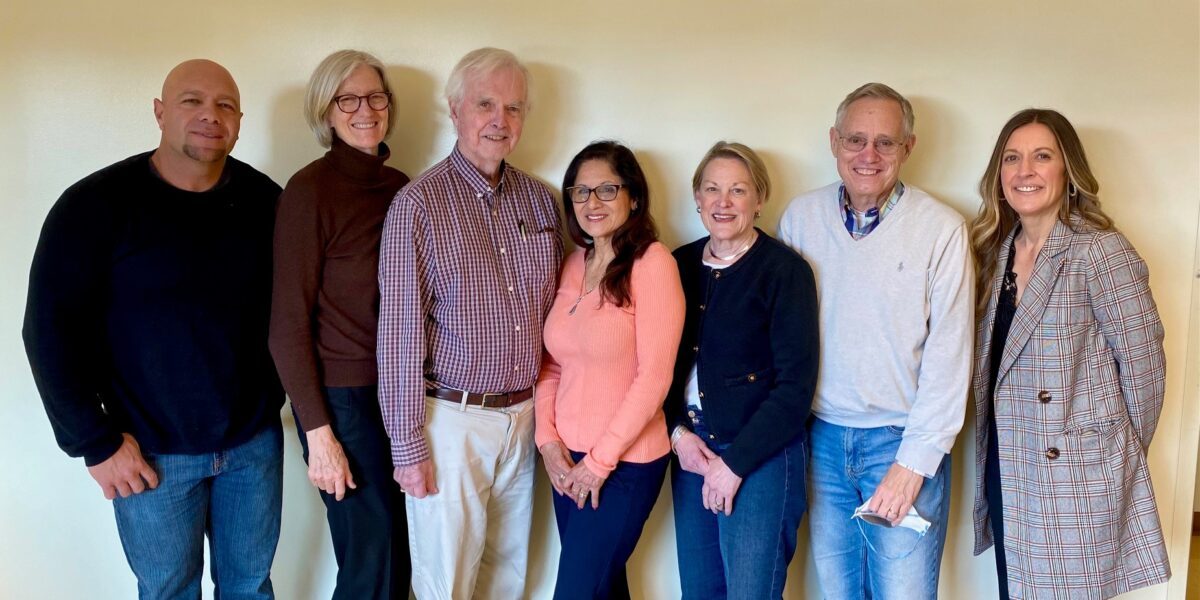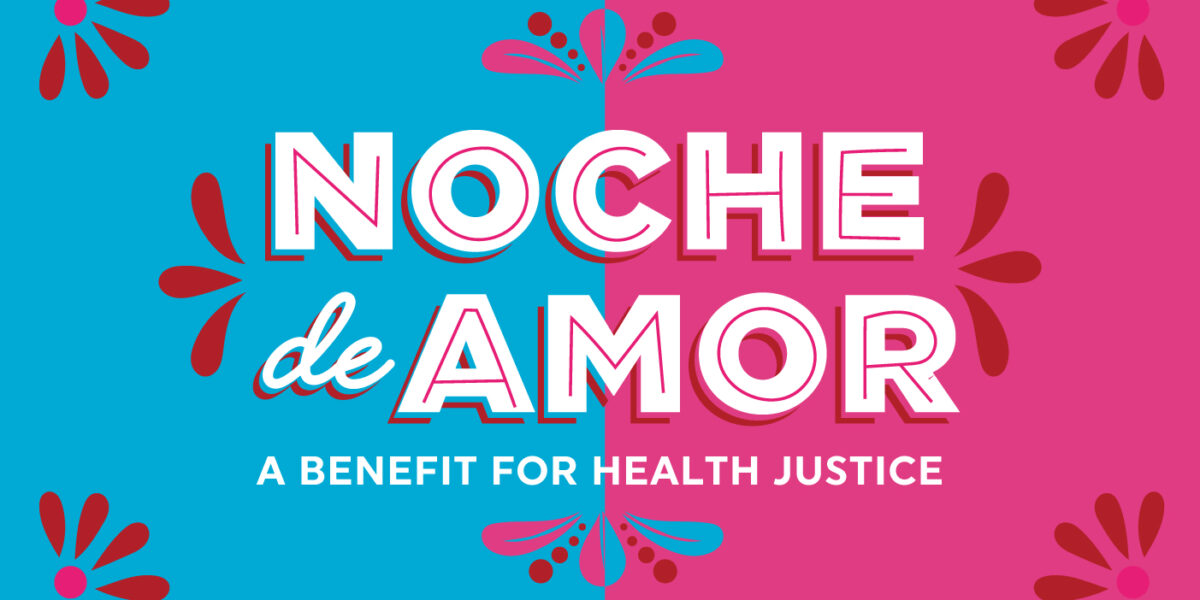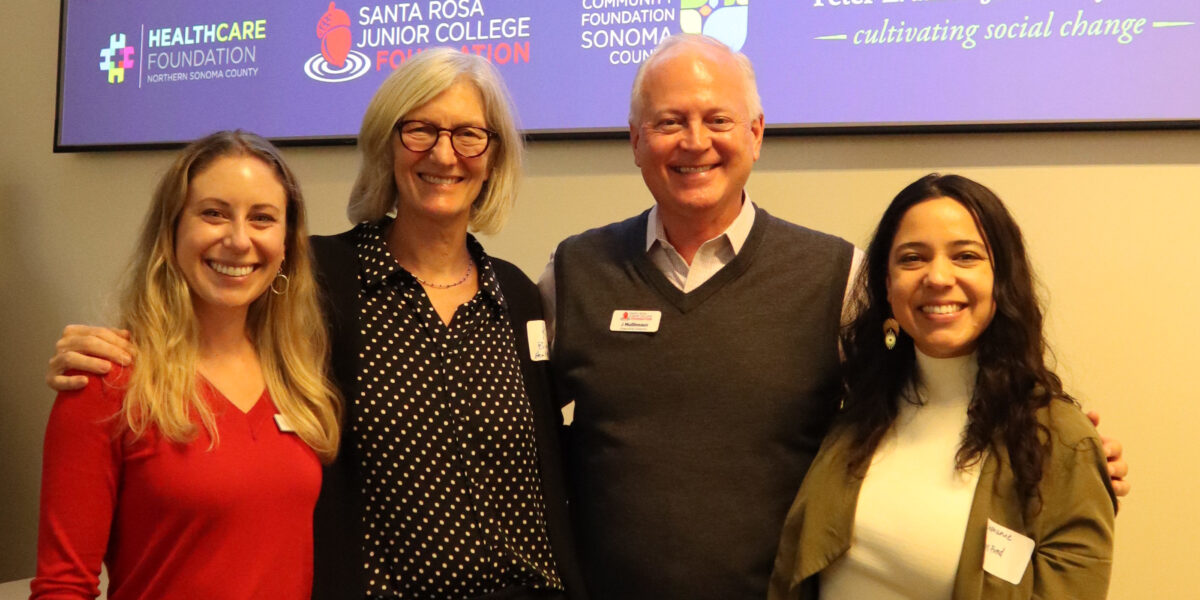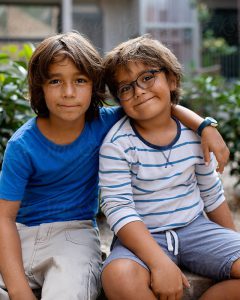
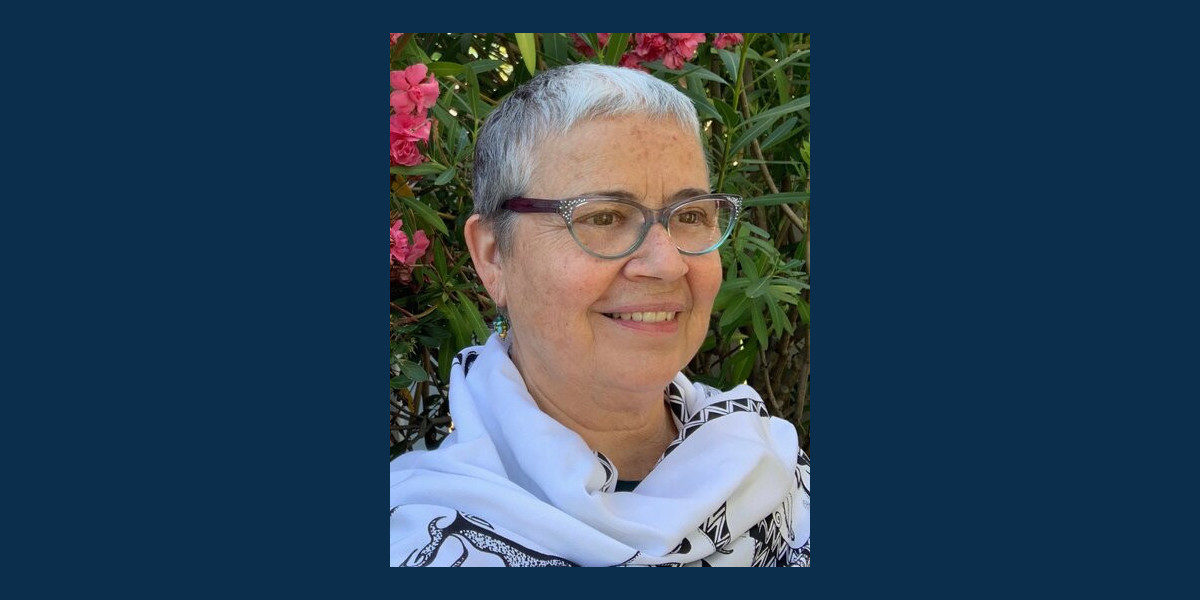
Grantee Spotlight: Cynthia Calmenson on IMCF and its Imagine You Program
Cynthia Calmenson tells us about Integrative Medical Clinic Foundation's Imagine You program, which is supported by a $50,000 grant from the Healthcare Foundation.
In March of this year, the Healthcare Foundation directed a grant of $50,000 to Santa Rosa–based Integrative Medical Clinic Foundation (IMCF) to build out a culturally responsive Spanish-language version of the organization’s Imagine You resilience skills curriculum for mental health service workers.
IMCF’s mission is to advance wellbeing and resilience in the face of adversity in support of its partners in the California social services, healthcare, and disaster response sectors. Especially in the wake of the pandemic and the recent fires, burnout and compassion fatigue are serious factors undermining the health, effectiveness, and perseverance of local staff and volunteers serving on the front lines of community health and emergency services and disaster relief.
IMCF’s Imagine You program, developed by Ellen Barnett, MD, PhD, fosters wellbeing in staff and clients alike based on evidence-informed mental and behavioral health research. The program has been a highly valued training for promotoras de salud / community health workers, case managers, disaster service workers, patient navigators, crisis support counselors, and others.
As IMCF Executive Director Cynthia Calmenson describes below, a Spanish version of the Imagine You program had been a recognized need for some time before the Healthcare Foundation grant—which advances the Healthcare Foundation’s strategic focus on Community Resilience, Engagement and Support—made its development feasible.
IMCF’s process involves the participation of La Familia Sana and the Botanical Bus, both of which have experience and expertise delivering services to Spanish-speaking communities. Having these two northern Sonoma County community-based organizations as partners in the development of the Spanish-language curriculum helps to ensure that the content, concepts, and delivery are truly culturally responsive.
Cynthia Calmenson has served as IMCF’s executive director since 2011. A California native who has also spent several years living abroad, Cynthia moved with her husband to Santa Rosa in 1999. There, as a newly certified Feldenkrais practitioner, she first became involved in a new integrated medical clinic, the roots of today’s IMCF, spearheaded by Dr. Bob Dozor and Dr. Ellen Barnett (who would go on to create the Imagine You curriculum).
In addition to her role at IMCF, Cynthia joined the Sonoma County COAD/ROC Long-term Recovery Collaborative after the Tubbs Fire in 2017 and served as COAD Chair and Chair of COAD’s Emotional and Spiritual Care Committee, and currently works to recruit members, develop an activation plan, and build members’ capacity to provide compassionate listening and mental health support during disasters.
She kindly spoke to us recently about the Imagine You program and the Spanish-language version now being developed. The following conversation has been lightly edited for length and clarity.
The Imagine You curriculum recently went online. How has the Imagine You curriculum been changing?
Covid pushed us to move our curriculum delivery online. Now we can deliver Imagine You without being limited by geography. We secured funding to convert our content into an online delivery curriculum through the support of the North Valley Community Foundation in Butte County, who is an important partner. It’s been a very interesting, wonderful trajectory.
At the same time, the community was saying to us, both locally and elsewhere, “Don’t you have this in Spanish? You all need to deliver this in Spanish.” We always wanted to do that. And what made it possible was our connection with Kim [Bender] and her seeing our program, and also with Wanda [Tapia-Thomsen], who before she got involved with the Healthcare Foundation knew about us through the relationship we have with Latino Service Providers. Between our connection with Kim and encouragement from Wanda, we applied for and received this funding to move our program into the Latinx community. The Healthcare Foundation is really launching us there; that’s what this funding is doing.
In the social services and healthcare sector, there are many Latinx staff and volunteers, and yet we’ve always delivered our program in English because that’s what we had to work with. This funding is giving us the opportunity not just to translate our work but to make it culturally responsive. On our team we have three bilingual trainers—Claudia Leiva, Marie Rivera, and Isabel Tiemann—who are all from the social services sector. They’re also passionate educators dedicated to their community. These trainers are very well versed in our program in English and now they’re helping us adapt it, translate it, and deliver it to an all–Spanish-speaking audience.
“For all helpers, all healers, the risk of burnout is high. Coming from healthcare, we understand this.”
Cynthia Calmenson, Integrative Medical Clinic Foundation
You’re somewhere in the middle of the process. How has it been so far?
It’s going well. Our program’s skills and tools have a dual purpose. They are self-care, self-reflection tools, and those same tools can be deployed with those you are talking or working with, whether it’s a family member, team member, or client. For promotoras, for instance, these are very deployable skills. We have trained community health workers who are using these skills with the clients they serve. We’ve developed these tools for people to enhance and deepen their interaction and their rapport with their clients, and with all the people they serve, whether it’s a brief interaction or case management.
We are about halfway through our program delivery to the Botanical Bus staff. They are an amazing and dedicated team of healers. They are giving us important feedback on the program content, cultural nuances, and linguistic enhancements. They shared that they are already thinking about ways to incorporate the Imagine You tools into their programs. We are deeply honored to engage them in our development process.*
In the case of the cohort from La Familia Sana, two of their staff do direct case management; they have ongoing relationships with the folks that they serve. For the rest of the staff, it’s more one-time contacts; they’re doing outreach, events, Covid education, and more—so briefer forms of contact.
However, all of them expressed that they were very touched by the skills. They are very passionate. They’re working directly with folks who just immigrated and who maybe can’t make their rent, or can’t get to the doctor—they’re doing really important grassroots work to help people cope with living in Sonoma County, and they give it their all.
They shared their motivations for doing this work. We helped them step back a little and realize: “I need to put the oxygen mask on myself first, before I put it on the person I’m helping.” For all helpers, all healers, the risk of burnout is high. Coming from healthcare, we understand this.
In other words, it’s important to take care of the people doing the work on the ground if we want to see the work done.
Yes. And the light doesn’t shine much on this issue. The helper mindset is very much a heroic mindset. That is not sustainable without support. Naturally we focus on the people being served, who are suffering—those who in a disaster are getting the water handed to them. But the people helping them, the ones handing out the water, those people are suffering from vicarious trauma. And they are themselves often survivors, as in the case of fire survivors. A big part of our work is in the disaster recovery space. And across the board, that’s what’s happening. After about nine months, there is a substantial turnover of case manager teams because they can’t sustain it.
It’s an issue with helpers in general, and we feel honored to share our Imagine You tools with the La Familia Sana team who are doing such important work in the community.
* Cynthia shares a comment by Botanical Bus Executive Director Jocelyn Boreta: “The Imagine You training is effective in its simple approach that centers each of our own unique sense of well-being. The Spanish-language pilot program meets a critical need to invest in mental health supports that recognize cultural wealth. The bilingual, bicultural facilitators put power in the hands of the Latinx and Indigenous Promotora CHWs [community health workers] who in turn reaffirm that power in their clients. Thank you for the good reminder that we have the power to feel better!”

Related News + Stories
Invest in Our Community
Your support is vital to our collective vision of eliminating health inequities in northern Sonoma County.
Donate
